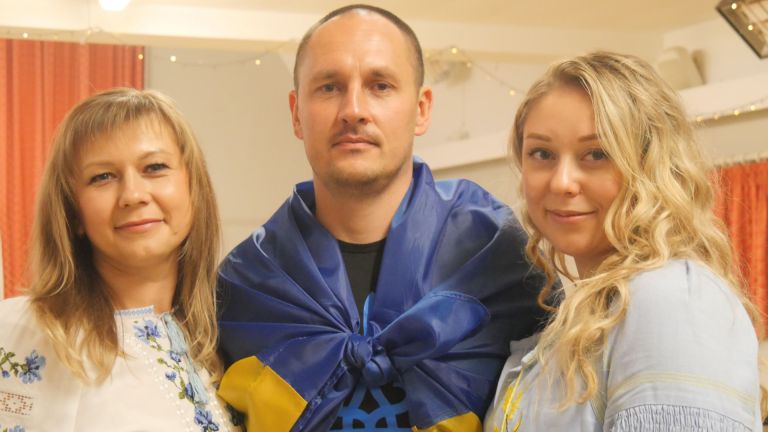Based on the data collected by Screen Share, the UK’s leading digital inclusion charity for refugees, and research conducted by Good Things Foundation, we estimate that up to 50% of refugees looking for help from refugee-supporting organisations are to some extent digitally excluded.
Refugees are also significantly more at risk of homelessness than other portions of the UK population. Statistics from the Ministry of Housing, Communities and Local Government show that in 2024, 15,200 households in England received homelessness assistance from a local authority after leaving asylum accommodation. The No Accommodation Network (Naccom) declared this a ‘refugee homelessness emergency’.
Many of the essential organisations set up to support refugees in the UK focus on improving a specific element of their lives. This makes sense; they offer targeted interventions delivered by experts in, for example, housing, education, employment, or English language. However, these forms of support are dramatically undermined by digital exclusion: finding housing or applying for homelessness assistance is significantly easier to do online, it’s near impossible to find and apply for jobs without the internet, schools and universities now function within a digital framework, and the most immediate language support exists in online translators.
Digital exclusion is blocking refugees from receiving support and from fully integrating into the UK, and is greatly limiting their potential.
At Screen Share, we see outcome improvement across the board as a result of targeted and holistic digital inclusion support. Housing, employment, education, English language, community participation, access to healthcare and wellbeing all go up, whilst social isolation goes down.
We also see that the impact of digital inclusion for refugee clients deepens over time. As someone’s digital confidence grows, so too does their confidence in other areas of life – they report better self-worth, build relationships, and develop greater independence following our support. They become able to fully engage in and contribute to their communities.
Advertising helps fund Big Issue’s mission to end poverty
This isn’t because of our support alone though. Digital inclusion enables refugees to be reliably contacted by the organisations that support them in other ways, allowing these services to function effectively. A total of 176 refugee-supporting organisations have requested to partner with us because they need all three elements of digital inclusion support: devices, internet and skills. That includes local and national charities and councils of all sizes. These organisations are neutered by the digital exclusion of their refugee clients.
Screen Share is a refugee-specific organisation because we deem our work necessary and impactful. Refugees represent a well of untapped potential that is unlocked immediately through digital access. You give a laptop, you get, for example, a highly qualified engineer.
That said, we are more than aware that digital inclusion is a widespread, national issue, highest among those who are in low socio-economic groups, such as those who are homeless. For these groups, digital inclusion support is also incredibly effective and there are countless organisations offering digital skills, access and connectivity support for people from these backgrounds.
In the context of the government’s Digital Inclusion Action Plan, the current moment presents a significant opportunity to move towards a more just and fairer digital future for all, but we must do it together. Digital inclusion for refugees means they can speak to their family, complete a degree, get a job, and become an economically contributing member of society. This isn’t just good for the refugee themselves; it’s good for everyone.
Isaac Costley is from Screen Share UK, a charity registered in England and Wales. To contribute to digitally including refugees in the UK, or for refugee digital inclusion support, please visit their site.
Do you have a story to tell or opinions to share about this? Get in touch and tell us more.
Advertising helps fund Big Issue’s mission to end poverty
Reader-funded since 1991 – Big Issue brings you trustworthy journalism that drives real change.
Every day, our journalists dig deeper, speaking up for those society overlooks.
Could you help us keep doing this vital work? Support our journalism from £5 a month.









